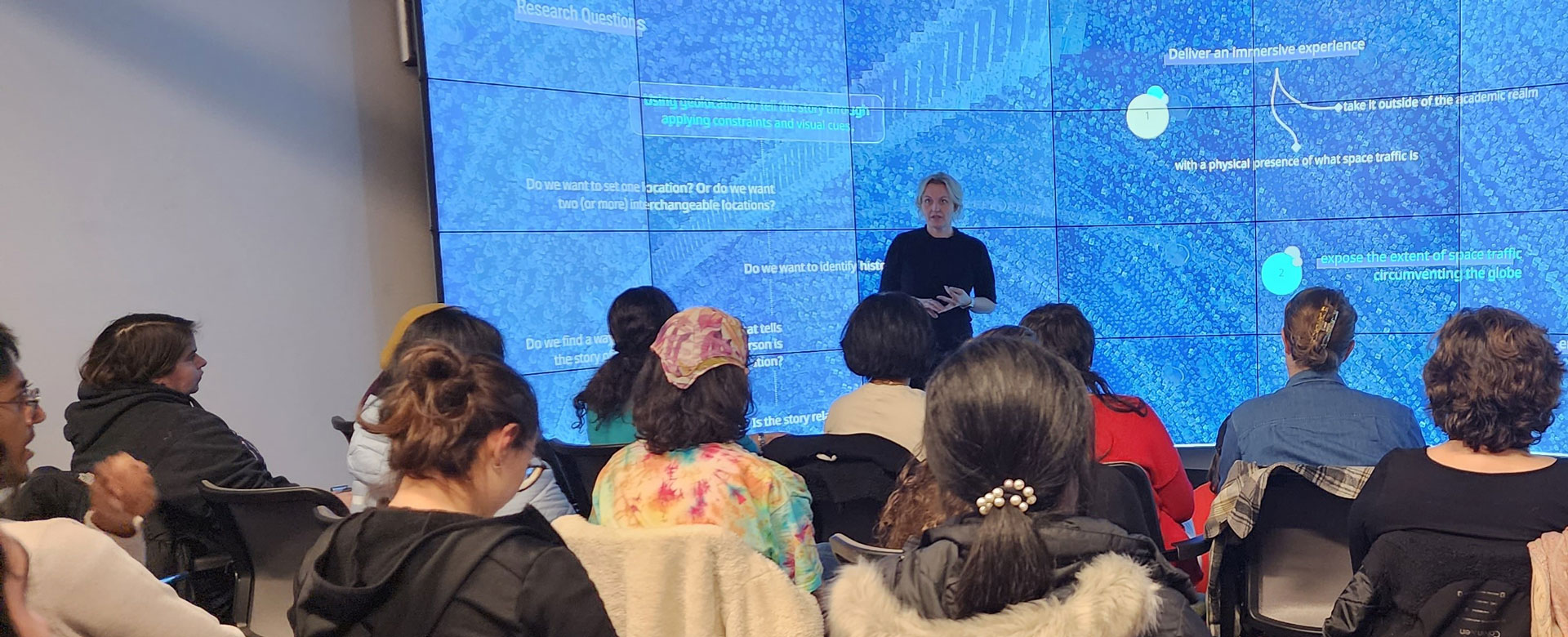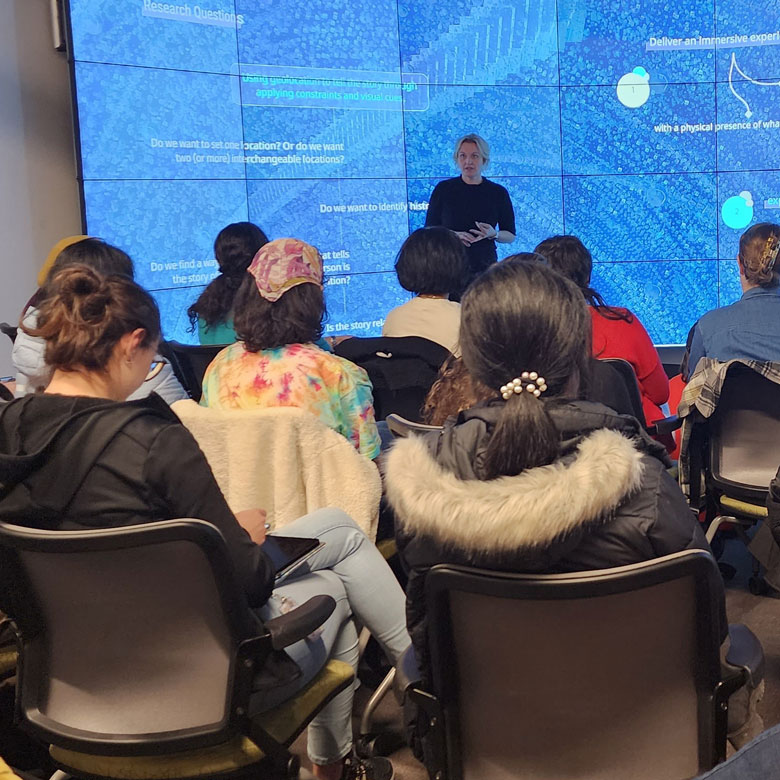Research and Training Components
CITech students complete the program requirements while concurrently working on their master’s or doctoral degree at their UBC home department. A certificate of completion will be granted to CITech graduates. The key components of the program are listed below. It is of note that the course and workshop modules can be completed within one year of starting the program.
The program includes the following three custom-designed courses. Students are required to take IMTC 505 and 506. The third course (IMTC 507) is optional.
Fundamentals of Immersive Technologies (IMTC 505)
The course introduces the history and concepts surrounding immersive technology. Specifically, it covers topics such as immersive platforms (e.g., AR/MR/VR technology), interaction techniques (e.g., manipulation, gestures), and 3D user interfaces (e.g., spatial and customizable interfaces). Students will use software (e.g., Unity 3D) to design and build interactive, immersive environments and deploy them on mobile and wearable devices. In addition, they will be introduced to popular research and industry-relevant topics within Immersive Technologies.
User-Centered Immersive Design (IMTC 506)
The course provides an overview of user-centered design workflows and provides a unique opportunity for graduate-level students to work in teams with an industry or community partner to develop a MITACS project proposal on the application of immersive technologies. This course supports the students as they conceptualize their projects with stakeholders that could potentially become the topic of their thesis research, or a side industrial project during their degree.
Immersive Technology Design Studio (IMTC 507)
This course is a studio project-based class that provides a hands-on opportunity for students to develop their interdisciplinary, immersive technologies, primarily focusing on production, reflection, and critical evaluation of the projects they defined during the course II. Students will engage in open conversations and round-table classroom discussions on critical equity and diversity topics in the field. How does immersive technology design distribute benefits and burdens among various groups of people in allocating properties that enable or disable possible actions? How the design of affordances and disaffordances, objects and environments, interfaces, systems, AI algorithms and processes simultaneously distribute limits and access at various scales: personal, family, community, institution and society. We will analyze design practices that can become tools for liberation through equitable distribution of benefits and burdens, meaningful capacity-building participation in design decisions, and recognition of community-based, indigenous, diasporic traditions, knowledge, and practices.
Note 1: Students are also required to complete the “C# Scripting Fundamentals in Unity” online courses offered by Circuit Stream in the summer before taking IMTC courses.
Note 2: IMTC courses are offered in a hybrid mode. The physical location of the courses are at the Okanagan campus of UBC.
Note 3: Students may take IMTC courses as part of their regular graduate program requirements at their home department, or as additional courses (please consults closely with your intended primary supervisor).
Note 4: To enhance their data-driven research skills, students are also encouraged to take data analysis related courses in their home department if applicable.
Note 5: Our courses are offered collaboratively by professors from different faculty ranging from Computer Science, Engineering, to Digital Arts, among others. The UBC Okanagan Visualization and Emerging Media Studio (VEMS) will be the home to some of the courses and student activities, aiming to lower the bar of entry into real-world immersive realities and big data visualization. VEMS features Canada’s highest-resolution, 3D, VR-ready video wall.
Note 6: Students are also encouraged to take Engineering Immersive Analytics Applications course (CPSC 601.03) offered at the University of Calgary by Prof. Frank Maurer. Our program has made arrangement with the course instructor to facilitate the registration of CITech students in this course. Engineering Immersive Analytics Applications is designed to provide students with an in-depth understanding of the principles, technologies, and evaluation methodologies involved in developing Immersive Analytics and Serious XR applications. Immersive analytics combines data visualization, human computer interaction, and extended reality (XR) techniques to create highly interactive and immersive environments for data analysis and decision-making.
Research
Master’s thesis or doctoral dissertation of students participating in the program must have some relevance to immersive technologies. In addition, the students will have the opportunity to work on a collaborative research and development project with a non-academic external partner during IMTC 506 course.
Internship (optional)
After completion of the course work, the students will have the opportunity (optional) to go on internship with CITech’s partner organizations that are based in different sectors including information management, manufacturing, health, education, entertainment, etc.
Professional Skills Development
Students are required to complete the following four workshops that complement their technical skills and improve their job-readiness: 1) Entrepreneurship and Commercialization of Immersive Innovations, 2) Equity, Diversity, and Inclusion (EDI) in Immersive Design, 3) Mitacs Communication Skills, or Writing and Presentation Skills, and 4) Mitacs Project and Time Management.
Knowledge Exchange
CITech Seminar Series and CITech Annual Research Symposium provide opportunities for students to interact with national and international experts in immersive technologies and receive feedback on their thesis projects.

